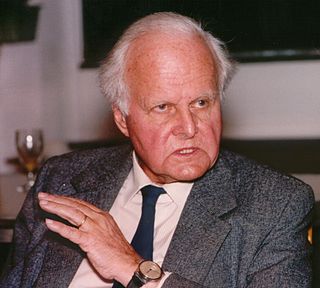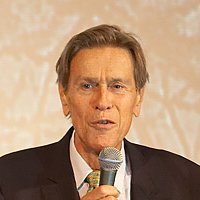A Quote by Richard P. Feynman
Progress in science comes when experiments contradict theory.
Quote Topics
Related Quotes
Science is a dynamic undertaking directed to lowering the degree of the empiricism involved in solving problems; or, if you prefer, science is a process of fabricating a web of interconnected concepts and conceptual schemes arising from experiments and observations and fruitful of further experiments and observations.
Belief Systems contradict both science and ordinary "common sense." B.S. contradicts science, because it claims certitude and science can never achieve certitude: it can only say, "This model"- or theory, or interpretation of the data- "fits more of the facts known at this date than any rival model." We can never know if the model will fit the facts that might come to light in the next millennium or even in the next week.
For chemistry is no science form'd à priori; 'tis no production of the human mind, framed by reasoning and deduction: it took its rise from a number of experiments casually made, without any expectation of what follow'd; and was only reduced into an art or system, by collecting and comparing the effects of such unpremeditated experiments, and observing the uniform tendency thereof. So far, then, as a number of experimenters agree to establish any undoubted truth; so far they may be consider'd as constituting the theory of chemistry.
I think it's science and physics are just starting to learn from all these experiments. These experiments have been carried out hundreds and hundreds of times in all sorts of ways that no physicist really questions the end point. I think that these experiments are very clearly telling us that consciousness is limitless and the ultimate reality.
This is a really big space station. We do a lot of various kinds of work here, different kinds of science experiments; we have over 400 different experiments going on at any one time in different areas, from basic science research to medical technology, that hopefully will benefit more people on Earth.
Evolutionary theory, properly understood, does not conflict with the idea that God occasionally intervenes in nature - for example, by once or twice causing a beneficial mutation to occur. Biologists have not detected any such interventions despite the data and theory they have assembled about mutation. However, I think it is a mistake to expect biological experiments to be able to detect such one-off acts of divine intervention, especially if those acts occurred in the distant past. Science isn't in that line of work.


































